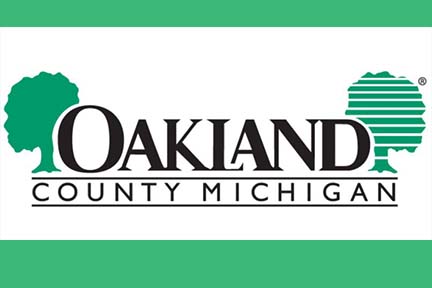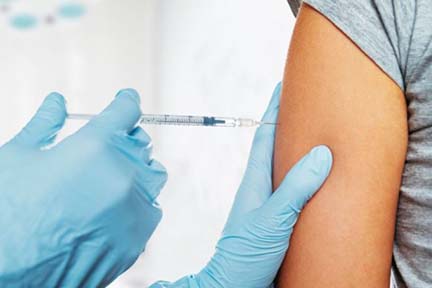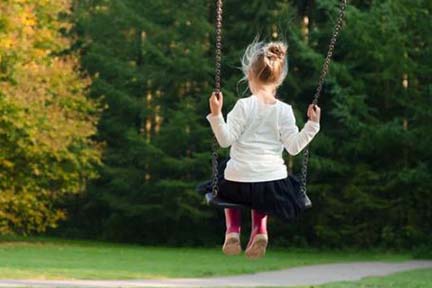
by orionontv | Mar 28, 2025 | Health and Wellness
|
Press Release
FOR IMMEDIATE RELEASE: March 28, 2025
CONTACT: Lynn Sutfin, 517-241-2112, Sutfinl1@Michigan.gov
MDHHS seeks applications to enhance nursing facility services
through Civil Money Penalty Reinvestment Program
LANSING, Mich. – The Michigan Department of Health and Human Services (MDHHS) Long Term Care Operations Section has issued a Grant Funding Opportunity (GFO) for quality-of-life enrichment projects for residents of nursing homes.
The purpose of the Civil Money Penalty Reinvestment Program is to fund projects and activities that will support, protect and benefit nursing facility residents. All proposals must include enhancements to nursing facility services and go beyond the services required to be provided by a nursing facility.
Eligible applicants include hospitals and health care organizations, academic institutions, nursing facilities, nonprofit organizations, private businesses, Native American Tribal organizations and other organizations. Organizations must be able to plan, implement and evaluate projects, programs and improvements designed to protect or improve quality of life and care for nursing home residents.
The grant period is from Oct. 1, 2025, to Sept. 30, 2026. The total amount available is $5 million. All applicant agencies must register for the EGrAMS system and request an application by 5 p.m., Friday, May 16. Grant applications for the Civil Money Penalty Reinvestment Program GFO must be submitted electronically via EGrAMS by 3 p.m., Thursday, May 22. Technical support is available until noon that day through the EGrAMS Help Desk.
A pre-application conference will be held to provide information about the grant program and instruction on using the EGrAMS system. The pre-application conference is at 1:30 p.m., Tuesday, April 8. The conference will last approximately 90 minutes and can be accessed at: Pre-Application Conference: CMPRP-2026.
For more information or to apply, visit the EGrAMS website and select “About EGrAMS” link in the left panel to access the “Competitive Application Instructions” training manual. The complete GFO can be accessed under the ‘Current Grants’ section under the “Health and Aging Services Administration” link and selecting the “CMPRP-2026” grant program. |

by orionontv | Mar 13, 2025 | Health and Wellness
|
Press Release
FOR IMMEDIATE RELEASE: March 13, 2025
CONTACT: Laina Stebbins, 517-241-2112, StebbinsL@michigan.gov
MDHHS launches interactive Public Health Data Dashboard
New tool offers health insights broken down by state legislative districts
LANSING, Mich. – The Michigan Department of Health and Human Services (MDHHS) has launched the Michigan Public Health Data Dashboard, providing policymakers with a data-driven snapshot of public health trends in each State House and State Senate district.
This comprehensive, publicly accessible resource can equip lawmakers, local officials, advocacy groups and the public with key health metrics, enabling them to identify challenges, allocate resources effectively and craft policies to improve health outcomes across Michigan.
The public health metrics currently include:
- Health outcomes, including mortality data, blood lead levels, low birth weight and more.
- Health behavior trends, including binge drinking, smoking and teen births.
- Social and economic factors, including housing costs and unemployment.
- Physical environment trends, such as pre-1980 housing.
- Clinical care trends, such as rates of prenatal care.
“We are excited to announce this dashboard and make it available to Michigan policymakers and the public,” said Dr. Natasha Bagdasarian, chief medical executive and Public Health Advisory Council (PHAC) co-chair. “While this will be a valuable tool for state lawmakers; the available information can also be used broadly by local leaders, advocacy groups and individuals, informing and supporting local public health decisions and community health actions.”
For each metric, there will be an estimate to compare whether a particular Michigan legislative district is doing better than, similar to or worse than statewide average. Additional metrics will be added in the future in order to present an up-to-date view of public health across Michigan.
The Michigan Public Health Data Dashboard was developed in response to a recommendation from PHAC to increase availability of public health information specifically for legislators and other policymakers. PHAC is a group of Michigan public health experts who provide expert guidance to MDHHS.
The dashboard can be found at Michigan.gov/HealthStatistics and will be routinely updated as additional information becomes available. |

by orionontv | Mar 12, 2025 | Health and Wellness
Oakland County Launches Wellness Wednesdays in Pontiac to Connect Residents with Vital Services
Post Date:03/12/2025 10:05 AM
- Wellness Wednesdays feature rotating services such as housing resources, career and employment support, community navigation, legal aid, Secretary of State services and medical care.
- Free showers and laundry facilities are limited and available on a first-come, first-served basis.
- Weekly events are held every Wednesday at the Baldwin Center in Pontiac.
Pontiac, Mich. – Oakland County Health and Human Services, in partnership with the Baldwin Center in Pontiac and several community organizations, announces Wellness Wednesdays. Every Wednesday from 10:30 a.m. to 12:30 p.m., Oakland County residents in need of health, housing, employment and community resources are invited to enjoy a meal at the Baldwin Center, located at 212 Baldwin Ave., while connecting with services.
“The Baldwin Center is an integral part of the Pontiac community, providing important services for more than 40 years,” said Deputy County Executive Madiha Tariq. “We are thankful for the collaboration with community partners to create a ‘one stop shop’ of vital resources.”
Wellness Wednesdays features rotating services such as housing resources, career and employment support, community navigation, legal aid, Secretary of State services, medical care and more. Free showers and laundry facilities are available on a first-come, first-served basis.
Participating organizations include Community Housing Network, Honor Community Health, Michigan Department of State, Molina Healthcare, Oakland County Health Division, Oakland County MI Works!, Oakland County Neighborhood & Housing Development, Oakland80, Alliance of Coalitions for Healthy Communities, Kids Empowered on the Move, Blue Cross Complete of MI, Lakeshore Legal Aid and Lighthouse.
More information about this weekly event is found on the Health Division’s website at oakgov.com/health or by contacting Nurse on Call at 800-848-5533 or noc@oakgov.com. Nurse on Call is available 8:30 a.m. to 5 p.m., Monday through Friday. For up-to-date public health information, follow @publichealthOC on Facebook and X.
For media inquiries only please contact Bill Mullan, Oakland County public information officer, at 248-202-9668.

by orionontv | Jan 17, 2025 | Health and Wellness
|
Press Release
FOR IMMEDIATE RELEASE: Jan. 17, 2025
CONTACT: Lynn Sutfin, 517-241-2112, Sutfinl1@michigan.gov
MDHHS urges vaccinations as respiratory cases rise in Michigan
Flu numbers expected to peak in coming weeks
LANSING, Mich. – The Michigan Department of Health and Human Services (MDHHS) encourages Michigan residents to get vaccinated, as increases in flu, COVID-19 and RSV activity have been observed and are expected to continue.
At the end of December, trends in respiratory illness reached the highest levels so far this season at both the national level (6.8% of outpatient visits for influenza-like illness) and in Michigan (4.5%). Michigan activity typically lags a few weeks behind the national trend, meaning the next few weeks are likely to see increasing local activity, especially as children return to school after the December holidays.
The majority of Michiganders are not up to date on the vaccinations that protect against these infections. Only 11% of Michigan residents have been vaccinated this season for COVID-19 and 23.6% have been vaccinated for influenza. It is not too late to get vaccinated against the flu, COVID-19 and RSV. All three of these vaccines can help protect against severe respiratory illness and can be given at the same time. Nationally, 11 children have died from influenza during the 2024-25 flu season; none of the children were from Michigan.
“With many respiratory viruses circulating and Influenza cases rising, it is crucial for Michigan residents to get vaccinated to protect themselves and their families,” said Dr. Natasha Bagdasarian, chief medical executive. “COVID-19 and flu vaccines are effective at preventing serious outcomes, including hospitalization and death. It is not too late to protect yourself and your family this season.”
According to state data, as of Dec. 28, approximately 2.5 million people have received their flu vaccine this flu season. This is well below the 4 million doses of flu vaccine that were expected to be administered this season. Vaccination coverage rates are highest among older adults, while they remain lowest for school-aged children (14.9% coverage for ages 5-12 and 7.7% coverage for ages 13-17) and college-aged young adults (10.9% coverage).
The Centers for Disease Control and Prevention (CDC) recommends the annual influenza vaccination for all persons 6 months and older, with rare exceptions. Getting vaccinated now, as respiratory virus activity is increasing, can still provide protection. Flu activity usually peaks in February, but significant flu activity can continue into May. It takes about two weeks after the vaccine is administered before the body builds up enough immunity to protect from severe illness from the flu. If eligible, Michigan residents should receive their flu, COVID-19 and RSV vaccines today to help protect from potentially severe consequences from these illnesses.
Vaccination is particularly important for these younger age groups as children return from the holiday break. It is also important for individuals at higher risk of developing serious complications — including young children, adults ages 65 years and older, people with certain medical conditions and pregnant persons. Speak to a health care provider to discuss vaccination and determine which flu vaccine is best for you. Additional information about recommendations can also be found by visiting ACIP Recommendations Summary | Influenza (Flu) | CDC.
Vaccines are an essential health benefit under the Affordable Care Act and are covered with no out-of-pocket costs by most health plans in Michigan.
Those with questions about their health insurance can contact the Michigan Department of Insurance and Financial Services (DIFS) at 877-999-6442, 8 a.m. to 5 p.m. Monday through Friday, or online at Michigan.gov/HealthInsurance.
Flu, COVID and RSV vaccines are widely available at local health departments, physicians’ offices and pharmacies around the state. Find a location by using the Vaccine Finder. Visit Michigan.gov/COVIDFluRSV for more information or visit IVaccinate.org to find answers to vaccine questions. Visit Michigan.gov/flufocus for updates on flu and respiratory illnesses in Michigan. |

by orionontv | Jan 15, 2025 | Health and Wellness
|
Press Release
FOR IMMEDIATE RELEASE: Jan. 14, 2025
CONTACT: Erin Stover 517-285-6270 stovere@michigan.gov
MDHHS provides update on latest MISEP report, highlighting progress made in protecting children in the department’s care
LANSING, Mich. – Today, the Michigan Department of Health and Human Services (MDHHS) appeared before Judge Nancy G. Edmunds of the U.S. District Court for the Eastern District of Michigan to provide an update on improvements the department continues to make to Michigan’s child welfare system, as part of the Modified Implementation, Sustainability and Exit Plan (MISEP).
During the court conference, Judge Edmunds determined that MDHHS has met or exceeded the required performance standards in five of the areas monitored for compliance during the reporting period of July 1, 2023 to December 31, 2023, moving these areas closer to the removal of court oversight. Additionally, Judge Edmunds applauded MDHHS and the federal court monitors on the progress made and stated that she is hopeful that with continued effort, MDHHS will move closer to exiting court oversight.
“Ensuring that all Michigan children have a safe and loving place to call home is a top priority at MDHHS. I’m proud of the work and positive impact our team continues to make for families and children,” said MDHHS Director Elizabeth Hertel. “This court conference allows us to discuss the innovative strategies we have identified and implemented to enhance our operations, including the Keep Kids Safe Action Agenda which includes protocols and policies to improve the safety and well-being of Michigan children.”
The latest report shows that MDHHS met or exceeded required performance standards in five of 26 areas monitored and were within 10% of meeting or exceeding the standard in four additional areas.
Key areas of progress include:
- Maintaining a sufficient number and array of homes capable of serving the needs of the foster care population including a sufficient number of available licensed placements within the child’s home community for adolescents, sibling groups, and children with disabilities – the monitors found that MDHHS has made good faith efforts to maintain an array of homes.
- Adoption caseload standards – 89.3% of adoption workers had a caseload of no more than 15 children, marking a second period of positive trending.
- Written family assessments and services plans – 85% of the reviewed cases had a comprehensive written assessment of a family’s strengths and needs, designed to inform decision-making about services and permanency planning, exceeding the performance standard of 83%.
- Provision of services – MDHHS agreed that the services identified in service plans be made available in a timely manner, to identify appropriate, accessible, and individually compatible services and to amend service plans when services are not provided or do not appear to be effective. In this area, 85.7% of the reviewed cases were rated as acceptable for provision of services, exceeding the 83% performance standard.
Federal court monitors have been tracking progress since a 2008 settlement agreement following a 2006 lawsuit filed against the former Michigan Department of Human Services by Children’s Rights. In 2019, the court approved the Michigan Implementation, Sustainability and Exit Plan.
In January 2024, many requirements in the settlement agreement were eliminated with a stipulated order signed by Judge Edmunds because of the significant and sustained progress made by MDHHS in numerous areas.
“Progress can be a long road, especially when it comes to child welfare, but it’s encouraging to see leaders recognize both the strides made and our plans to address the work that still lies ahead,” said Demetrius Starling, senior deputy director of the MDHHS Children’s Services Administration. “Continuous improvement is key to ensuring better safety and outcomes for kids.”
To view the latest federal court monitor report and other information, visit www.michigan.gov/ChildWelfareAgreement. |

by orionontv | Jan 9, 2025 | Health and Wellness
Press Release
FOR IMMEDIATE RELEASE: Jan. 9, 2025
CONTACT: Lynn Sutfin, 517-241-2112, Sutfinl1@michigan.gov
Michigan selected by CMS as one of four states to
participate in innovative behavioral health model
New model seeks to improve quality of care, access and outcomes
LANSING, Mich. – As part of its continuing commitment to improving behavioral health access to care and outcomes, the Michigan Department of Health and Human Services (MDHHS) is participating in the Innovation in Behavioral Health (IBH) Model.
The IBH Model focuses on improving quality of care and behavioral and physical health outcomes for adults enrolled in Medicaid and Medicare with moderate to severe mental health conditions and substance use disorder (SUD). The model will support aligning payment between Medicaid and Medicare for integrated services and improving quality reporting and data sharing. Michigan is one of four states selected by the Centers for Medicare & Medicaid Services (CMS) to participate in the model.
“We are excited to have been chosen by CMS to offer this enhanced level of care to Medicaid beneficiaries seeking treatment for behavioral health issues and substance use disorder,” said Elizabeth Hertel, MDHHS director. “Michigan residents will receive more personalized and integrated care through this model designed to reduce visits to the emergency department, improve behavioral and physical health outcomes and address quality of life needs such as housing, food and transportation.”
Medicaid and Medicare populations experience disproportionately high rates of mental health conditions or SUDs, or both. As a result, they are more likely to experience poor health outcomes such as frequent visits to the emergency department and hospitalizations or premature death. In FY2022, Michigan’s Community Mental Health Service Programs served 178,837 individuals for behavioral health issues; with 12,806 of those individuals receiving substance use services only. An additional 62,691 admissions for SUD services were administered by the state’s 10 Pre-Paid Inpatient Health Plans.
Michigan plans to implement the IBH Model in multiple locations throughout the state in both urban and rural areas, including the Upper Peninsula. Sites will be chosen from among providers who are currently participating in the Certified Community Behavioral Health Clinic demonstration or as a Health Home.
“Michigan’s receipt of this award from CMS underscores and will strengthen Michigan’s innovative community-based approaches to meeting the behavioral health needs of Michiganders. Building on Michigan’s network of Certified Community Behavioral Health Clinics and Behavioral Health Homes – two initiatives led by MDHHS – this newly funded initiative will foster even greater access to and coordination of behavioral health care and other community health and human services for Michiganders enrolled in Medicaid or Medicare,” said Robert Sheehan, Community Mental Health Association of Michigan CEO. “CMHA applauds MDHHS for expanding its partnership with CMS, the latest in a long list of leading-edge behavioral health initiatives.”
Specialty behavioral health providers will screen and assess patients for priority health conditions as well as behavioral health conditions and SUD. Providers will lead an interprofessional care team and be responsible for coordinating with other members of the care team to address patients’ behavioral and physical health and health-related social needs such as housing, food and transportation. Providers will be compensated based on the quality of care provided and improved patient outcomes.
The eight-year model period begins Jan. 1, 2025, and consists of a three-year pre-implementation period prior to services starting. MDHHS was awarded $7.5 million by CMS for planning and implementation.






